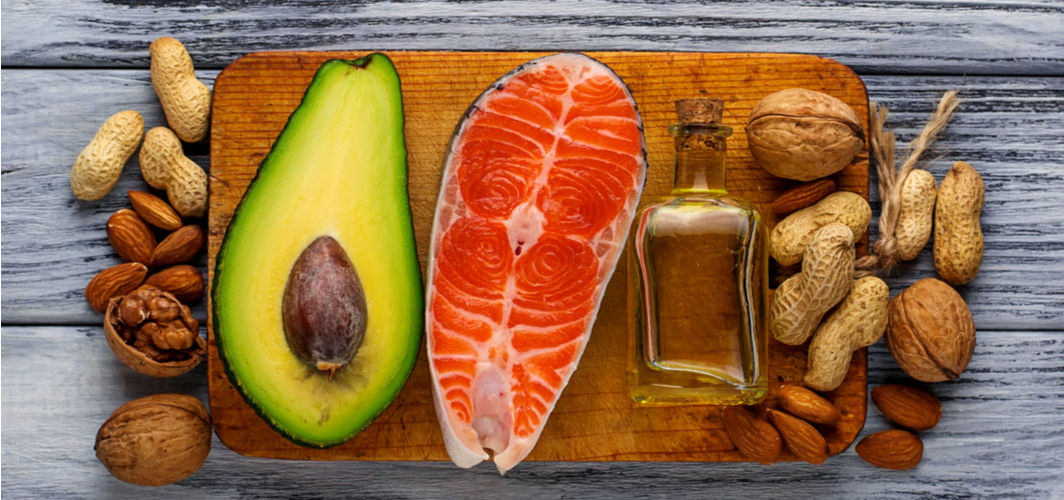Poor heart health is often associated with elevated cholesterol levels and high blood pressure. A lot of people focus on managing their cholesterol and blood pressure levels to manage their heart health. It is true that both these factors play a key role in the health and functioning of the heart. However, there is another major heart health determinant - triglycerides - that deserves equal attention. According to health experts, having high levels of triglycerides in the blood significantly increases the risk of heart disease. Given the impact of triglycerides on heart health, it is important to focus on ways that can help keep the levels of triglycerides under control. But before that one must know what triglycerides are and why they matter.
What are triglycerides?
Triglycerides are one of the most common types of lipids (fats) found in the blood. When we consume foods, the body converts the excess calories that it does not need into triglycerides. The body stores these triglycerides in the fat cells. They are later released by the body’s hormones to provide energy between the meals.
In the human body, triglycerides enter the bloodstream through the following three ways:
- Intake of foods rich in fats
- Intake of extra calories, carbs, and sugars
- Secretion from fats stores in the body
Although triglycerides are essential for the healthy functioning of the human body, too much of them (hypertriglyceridemia) can increase the risk of heart disease and other problems.
Difference between triglycerides and cholesterol
Both triglycerides and cholesterol are classified as lipids, a family of organic compounds that are important constituents of plant and animal cells. However, triglycerides and cholesterol are not the same. While triglycerides are categorized as ‘fats’, cholesterol is not.
Cholesterol is defined as a waxy and odourless substance that is produced by the liver and intestines in the human body. The body also gets cholesterol from the foods. Cholesterol is an essential component of cell walls and nerves. It also plays a key role in the digestion and production of hormones.
Both triglycerides and cholesterol perform different functions:
- Triglycerides stockpile unutilized calories and provide energy between meals
- Cholesterol helps build cells and supports the production of hormones
Triglyceride levels: Guidelines and ranges
A common test known as a lipid panel or lipid profile is used to determine the levels of triglycerides and different types of cholesterols (low-density lipoprotein or ‘LDL’ cholesterol, high-density lipoprotein or ‘HDL’ cholesterol, and total cholesterol) in the blood. The test is conducted in the morning after overnight fasting.
The lipid profile test classifies the triglyceride levels into the following ranges:
- Normal: Less than 150 milligrams per deciliter (mg/dL)
- Borderline: 150 to 199 mg/dL
- High: 200 to 499 mg/dL
- Very High: 500 mg/dL or above
The American Heart Association recommends that every individual aged 21 or older should take a lipid profile test every 5 years. This is important because people with high triglycerides (hypertriglyceridemia) usually do not experience any symptoms until it is too late.
Causes of high triglycerides
There are certain factors that can cause an unhealthy surge in triglyceride levels. Some of those are:
- Regular intake of high-calorie foods
- Being obese or overweight
- Smoking
- Excess intake of alcohol
- Uncontrolled type 2 diabetes
- Thyroid problems
- Poor liver health
- Kidney diseases
- Genetic disorders (familial hypertriglyceridemia)
- Certain medications such as estrogen, steroids, retinoids, immunosuppressants, etc.
Risks associated with high triglycerides
Available scientific evidence indicates that high triglycerides contribute to atherosclerosis, a condition characterized by hardening and narrowing of the arteries. Atherosclerosis is a major risk factor for heart disease. People with triglyceride levels higher than 200 mg/dL are at a greater risk of heart attack, stroke, and other fatal heart health complications. High triglycerides can also increase the risk of pancreatitis (acute inflammation of the pancreas).
Having high triglycerides can also indicate the following conditions:
- Obesity
- Type 2 Diabetes
- Fatty liver disease
- Hypothyroidism (low levels of thyroid hormones)
- Metabolic syndrome - a condition characterized by elevated blood pressure, obesity, high cholesterol, and diabetes
How to lower triglyceride levels naturally?
Some of the effective lifestyle and dietary changes that can help lower the triglyceride levels are:
-
Increase physical activity
According to health experts, regular physical activity and exercise can help lower triglyceride levels and raise HDL ‘good’ cholesterol levels. Health experts recommend that people should engage in at least 30 minutes of moderate exercise daily.
People who have high triglycerides should focus on reducing calorie intake. The body converts excess calories into triglycerides and stores them as fat deposits. Therefore, it is essential to consume fewer calories to lower triglyceride levels.
-
Avoid sugar, refined carbs and trans fats
The human body metabolizes the excess sugar and carbs into triglycerides. Regular intake of refined carbs and sugary foods and beverages can cause an unhealthy surge in triglyceride levels. Experts say that the consumption of foods rich in trans fats has a similar effect. Moreover, owing to their inflammatory properties, trans fats can also contribute to other health problems. Therefore, it is recommended that people with high triglycerides should limit their intake of foods that are rich in sugars, refined carbohydrates, and trans fats.
A high fiber diet is known to help lower triglyceride levels in the blood. Dietary fiber lowers triglyceride levels by reducing the absorption of sugar and fat in the small intestine. Some of the best sources of dietary fiber include whole grains, vegetables, fruits, nuts, and seeds.
-
Increase the intake of healthy fats
Healthy fats such as omega-3 fatty acids are known to be beneficial for heart health. According to the American Heart Association, 4 grams per day of omega-3 fatty acids can lower triglyceride levels by 20% to 30%. Fatty fish, walnuts, almonds, flaxseeds, etc. are some of the richest natural sources of omega-3 fatty acids. Prescription-strength omega-3 fatty acids are also recommended sometimes by physicians, as a safe and effective treatment for reducing triglycerides
Alcoholic beverages are high in calories. High intake of such beverages can adversely affect the triglyceride levels in the blood. People who have high triglycerides should avoid alcohol completely.
Conclusion
Along with cholesterol and blood pressure, triglycerides have a tremendous effect on the health and functioning of the heart. While triglycerides are important for certain biological functions, having too much of them is harmful to the heart. High triglycerides are a major risk factor for heart disease, heart attack, and stroke. Therefore, it is important to keep their levels under check. Simple lifestyle and dietary modifications can go a long way in decreasing the triglyceride levels naturally.
Talk to a cardiologist if you have any questions related to heart health.







